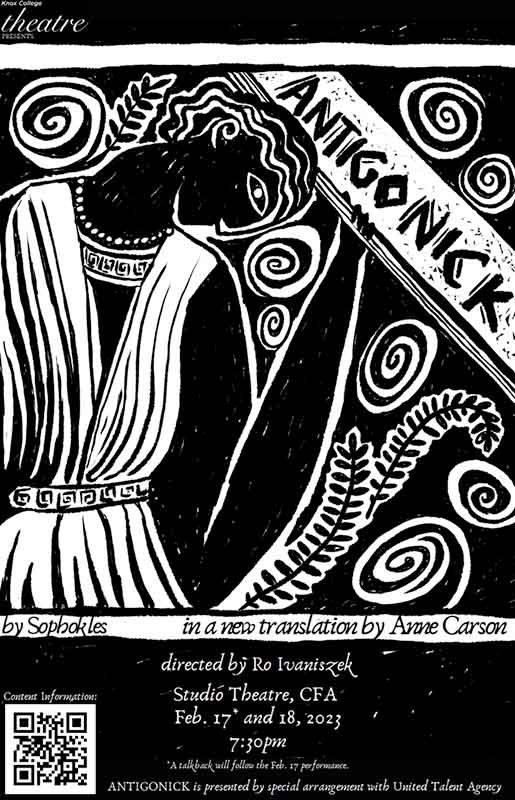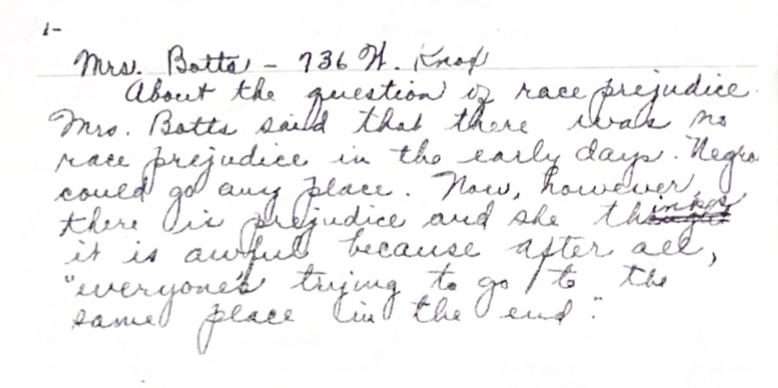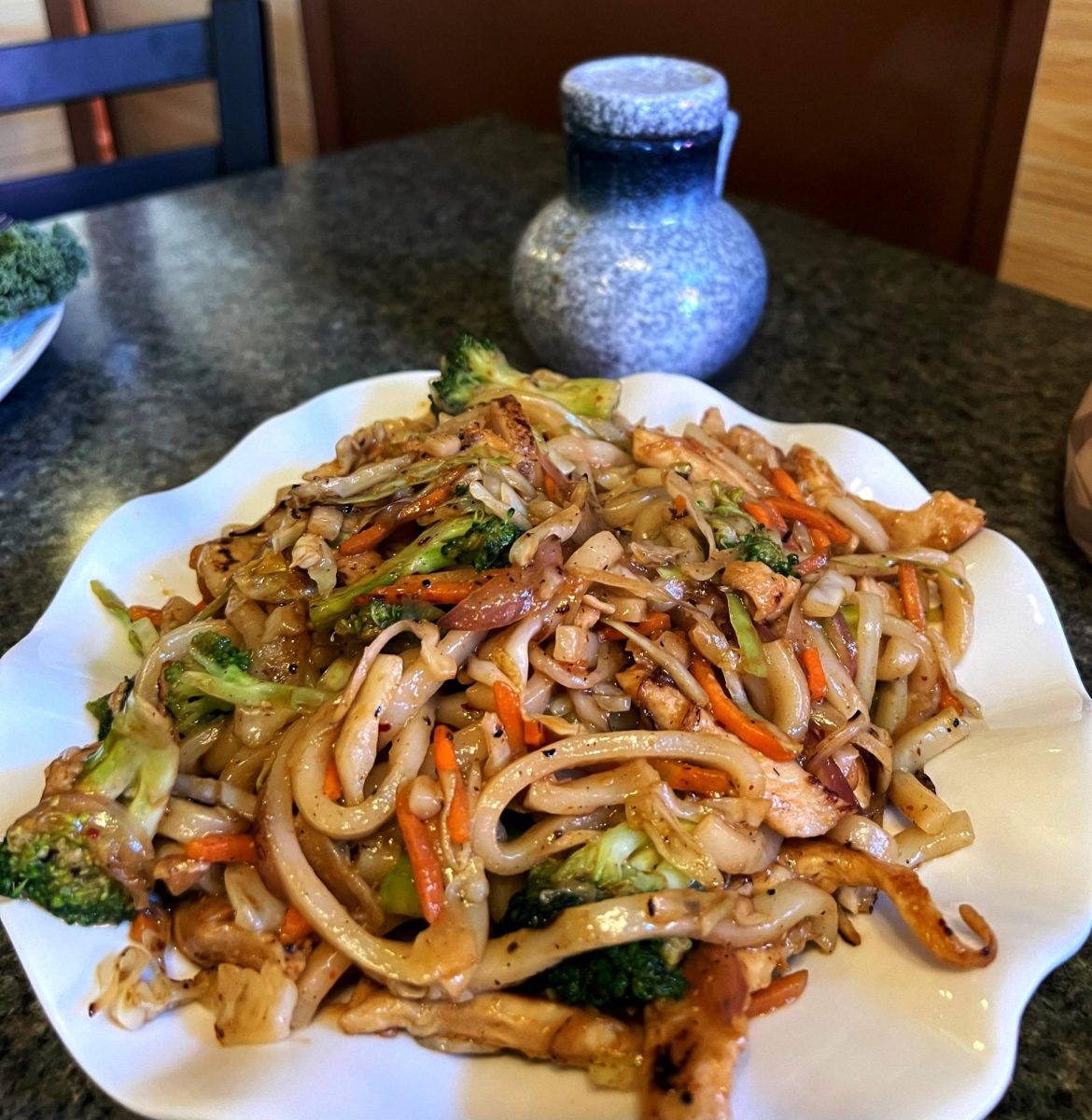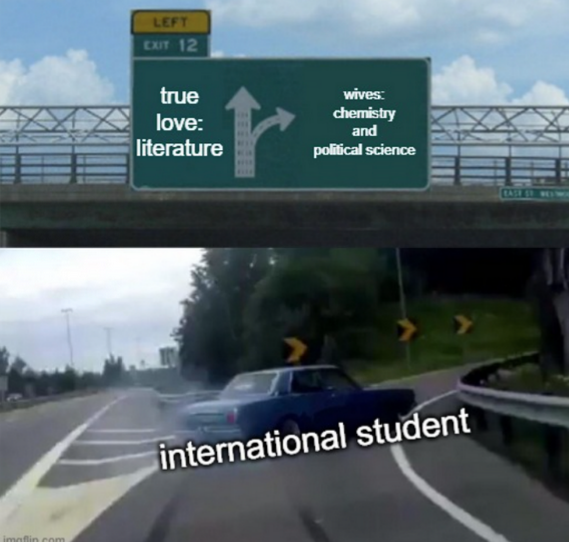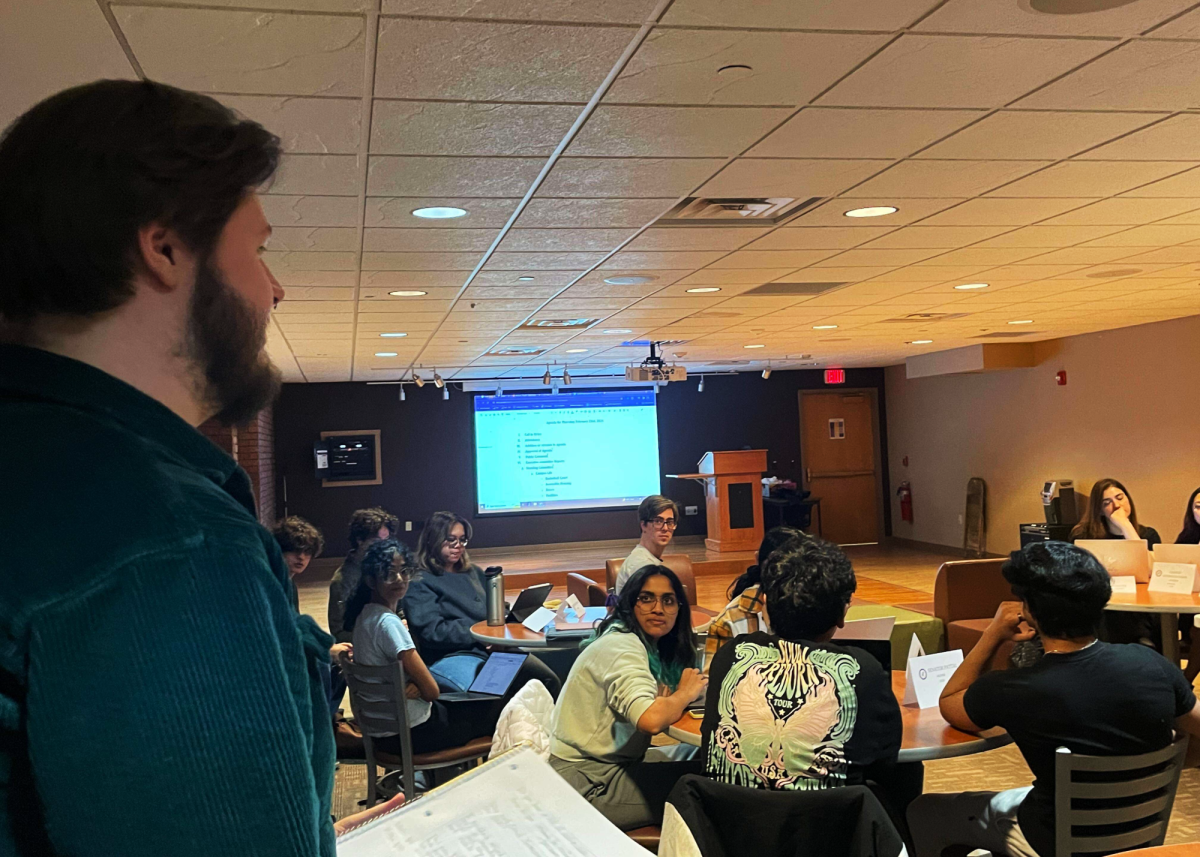Director Ro Ivaniszek looks back on the winter term production
While there is a chance I encountered Sophokle’s Antigone before college, the first time I remember reading one of the traditionally translated versions of that script was in my First Year Preceptorial, Myth and Modern, taught by Professor Mitchell Parks. We also read Home Fire by Kamila Shamsie, a modern adaptation of the Antigone myth through the lens of two British Muslim sisters dealing with the treason and subsequent death of their brother. In either 2020 or 2021, I purchased myself a copy of Anne Carson’s If Not, Winter: Fragments of Sappho, and fell in love with the way she translated Ancient Greek poetry.
In 2021, I purchased copies of Carson’s An Oresteia: Agamemnon by Aiskhylos, Elektra by Sophokles, Orestes by Euripides, and Antigonick. Initially, I preferred An Oresteia, as the translations leaned more traditional. They had a modern edge to them, which made them easy to understand, but did not break the boundaries of translation as Antigonick did. I had dreams of grandeur and wanted to direct all three plays in An Oresteia in a City Dionysia-style production. When I realized the resources of this department probably didn’t line up to such a production, I initially tried to decide between Agamemnon and Elektra as a single play to stage. However, An Oresteia does such a wonderful job of blending the three stories together, and I did not want to split them up. I began considering Antigonick again, and this second look at the script made me fall in love with it. The traits I loved so much about the characters of Kassandra and Elektra could also be found in Antigone, and I was intrigued by the question of how to handle the character/figure of Nick.
Going into directing Antigonick, I had a number of fears to deal with. The first was that aforementioned question of Nick; every production I had researched had used him somewhat differently. A 2013 Harvard production did not use Nick at all, instead saying that, “the absent character, meant to represent the ‘nick of time,’ will be filled in by the understanding the audience gains throughout the production. In Carson’s version, Nick illustrates how the characters’ rash decisions lead to the tragic situations that unfold, but that job is left to the audience in [the director]’s interpretation”. Personally, I felt like that was a bullshit directorial choice. It created a lot of motivation exclusively out of spite to find a purposeful way to use Nick, and prove that I could make better directorial choices than a guest director that Harvard brought in.
I was also concerned about working with the language of the script. It is modern, almost to a fault, and deeply poetic. There is little-to-no punctuation, only line breaks. When reading the script the first couple of times, my brain wanted to rush through every single chunk of dialogue, which created a rapid and claustrophobic view of Antigonick in my mind. As a director, I value moments of silence. It was important for me to find ways to make the story clear to audience members, as well as slow down the narrative to give people time to process.
Navigating the role of Nick became surprisingly easy after I developed an image for the end of the first scene, after Ismene and Antigone finish their conversation/argument with each other. I pictured a stage bathed in deep blue light, a rope leading off into the darkness of where Antigone exited, and Ismene following this rope, hand over hand, before deciding to exit in the opposite direction. This image built a foundation for Nick to measure and, more specifically, mark the entrances and exits of characters. From there, I decided he would also be used to mark relationships as well as the inevitable fates of the characters. Casting sophomore Cole Songster in this role helped me immensely, because they were incredibly willing to lean into the improvisational role of Nick and take cues from the blocking of the actors around them.
Nathan Hill as Creon
Discovering how to use Nick in this way did wonders for my worries about the comprehensibility of the text and its context. It became less important to know the specificities of the Oedipus myth, because Nick was emphasizing the individual and personal relationships of the characters onstage. All we really needed to know was that Antigone and Ismene had a bizarre family history — if an audience member did not grasp the details of that family history, very little of the story was actually lost to them.
When it came to the form of Antigonick, my cast dedicated themselves to spending time figuring out how they wanted to deliver their lines. Our first few weeks of rehearsal was interspersed with me giving constant, ‘take a pause here’ notes. I also gave them the general note to find their own comfortable blend between poetic, conversational, and presentational delivery of their lines. Some roles, such as the Chorus or Teiresias, required more presentational and poetic delivery, while other roles, such as the Guard, required more conversational delivery. In the case of my double-casted actors, Sophomore Jonas Dodge, First Year Ajani Salvari, and Senior Amelia Walz, they spent time developing different voices and deliveries for each of their individual characters, with both added to the understanding of the script and the recognition of their different characters.
An actor that was particularly wonderful to work with was Sophomore JoJo Ludington. She came into our first rehearsals, only a few days after casting, having already started memorizing her first scene. She developed a strong attachment to Antigone and the Antigone myth over the course of the production, and was incredibly dedicated the entire way through. One moment that really highlighted her dedication as an actor was when she arrived to rehearsal with a question about how I wanted Antigone’s anger to be portrayed; JoJo had recently read my script, The Kassandriad, in which a character implies that just because she hasn’t yelled, doesn’t mean she isn’t angry. JoJo asked me if that meant she should play Antigone’s anger quieter, as well. To be honest, the intricacies of Antigone’s anger was not something I had considered before that rehearsal. JoJo brought a new lens to the character of Antigone that played out beautifully on the stage, and I feel incredibly lucky to have had her as my titular character.
JoJo Ludington as Antigone
Overall, I feel lucky to have been able to do this production at this school with this cast. My obsession with Antigonick and the Antigone myth built up over the last four years, and this was a cathartic expression of that obsession. I am taking a lot away from this production, and I know I will think back fondly upon it for the rest of my life.
Kessler, Zoe. “In the ‘Antigonick’ of Time.” The Harvard Crimson, 18 Oct. 2013, https://www.thecrimson.com/article/2013/10/18/preview-antigonick-mainstage/.

